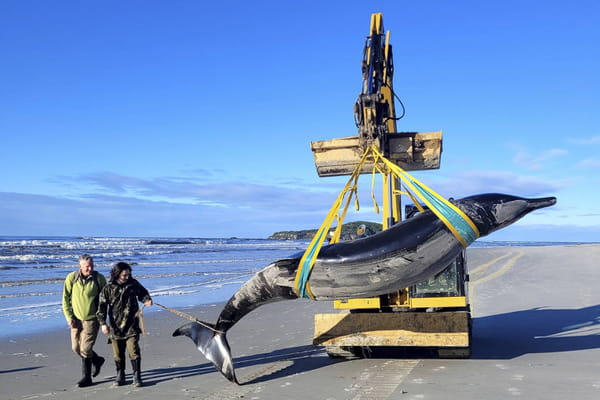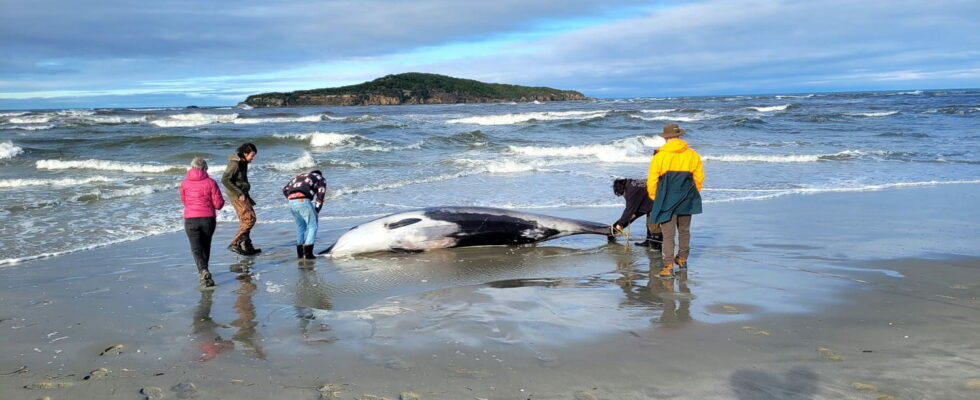This whale found washed up on a beach is so rare that it has never been seen alive by a human.
There are different species of whales: the humpback whale, the blue whale, the southern right whale, the pygmy whale, the bowhead whale… While some of them are well-known, others are rarer. This is the case of the whale that was found in July, stranded on the shore of the village of Taieri Mouth, in the South Island of New Zealand. This species is so rare that no living individual of it has ever been observed. Their number is therefore completely unknown. Their exact location and diet also remain very unclear. These whales are said to live somewhere in the depths of the Pacific and only rarely come to the surface.
The sea creature found on the sand was five metres long and was a male. “Since the 1800s, only six specimens have been documented worldwide, and all but one have come from New Zealand,” Gabe Davies, head of operations at the Department of Conservation, said in a communicated.

The specimens found previously were either in poor condition or had been buried before the scientists arrived by a Maori tribe. This animal is indeed revered as a treasure in their culture. For the whale that was just found, the tribe agreed to work with the scientists.
This is a spade-toothed whale. Its beak is very long and distinctive. It is reminiscent of that of dolphins. This species was identified in particular thanks to its colors, the shape of its skull, its famous beak but also its teeth. The first bones of this specimen were discovered in 1872 in New Zealand.
Samples of his DNA are being processed and his remains are being stored in a cold room. The aim is to learn more about the species so that we can better protect it. “This is going to lead to amazing scientific discoveries and information that has never been seen before in the world,” Hannah Hendriks, a marine technical adviser at the Department of Conservation, told Associated Press.
